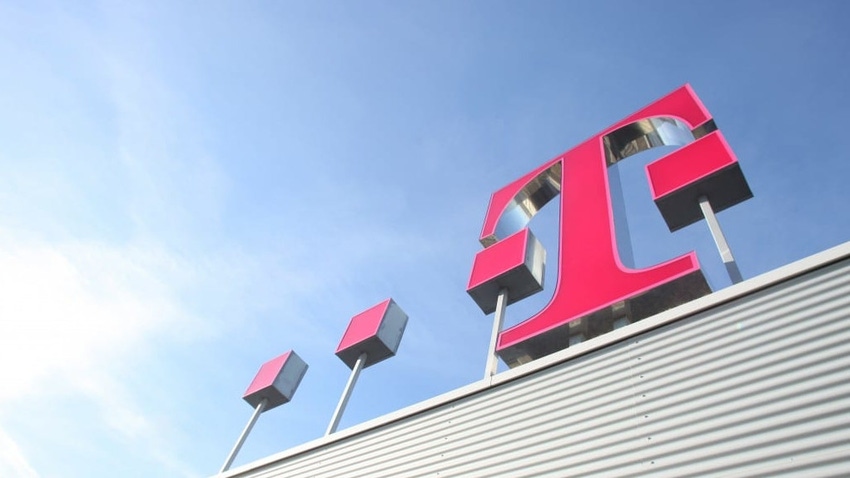T-Mobile prepares to flog $3.6 billion of spectrum as Dish flounders
Dish Network's inability to pay for US$3.6 billion worth of spectrum it had agreed to acquire will likely lead to its current holder, T-Mobile US, selling it off via auction later this year.
March 8, 2024

And in the meantime, Dish is fighting hard to stay afloat.
The US satellite TV provider and would-be mobile network operator revealed late last week that it is unlikely to have the money to pay for a number of 800 MHz spectrum licences it had agreed to buy from T-Mobile as part of the latter's merger with Sprint some four years ago. To make matters worse, the same SEC filing from parent company EchoStar warned that the operator may not be able to continue for much longer as a going concern, such is the extent of its financial predicament.
That being the case, an inability to pay for some spectrum is arguably the least of Dish's concerns. But given that we're less than a month away from a deadline on that score, it is the most immediate.
Dish should have exercised its option to buy 800 MHz frequency licences from T-Mobile US at a price of $3.59 billion, as agreed in mid-2020, last summer, but it brokered an extension; in the autumn it made an upfront payment of $100 million to T-Mobile for the privilege and agreed to exercise the option by 1 April.
The chances of that actually happening are now remote, at best.
"Throughout 2023, we were actively involved in negotiations with counterparties to obtain the financing necessary to exercise the 800 MHz purchase option. However, we have been unsuccessful in our attempts to reach terms for a definitive financing agreement," EchoStar said in its 10K filing.
"Due to the relatively short time remaining before the 800 MHz purchase option's expiration on April 1, 2024, we no longer believe it is probable that we will exercise the option. Therefore, we reduced the probability weighted value of the spectrum option to zero."
For now, T-Mobile is playing it cool. At the start of an interview at the Morgan Stanley TMT conference earlier this week chief financial officer Peter Osvaldik acknowledged that although there is little likelihood of Dish hitting the 1 April deadline, it still has time left.
"What we are obligated to do, should they not exercise that option, is take the spectrum to auction with a floor price of just under $3.6 billion," Osvaldik said. "We haven't commenced that auction yet, but should they choose not to exercise it, that'll be the next step for us."
Its deadline to carry out that auction is the autumn, the CFO said, adding that while there are no explicit restrictions on the parties it can sell to, any deal would be subject to FCC approval.
T-Mobile's major rivals would doubtless be interested in the frequencies, as would any number of other players in the US. But for now, the ball is still with Dish.
Osvaldik did not directly answer a question as to whether T-Mobile gets to keep the $100 million upfront payment Dish made last year, but presumably it's a 'yes'. That's money Dish can ill afford to lose, given the state of its finances.
The firm merged with former sister company EchoStar at the start of the year, a tie-up that was essentially designed to shore up Dish's finances; EchoStar had little debt and plenty of cash. The companies are still going through the integration process, but it's starting to look like that transaction was not enough to sort out Dish's problems.
The merged entity – EchoStar – has debt maturing this year that it may not be able to pay, and it also needs cash to keep operating.
"This raises substantial doubt about its ability to continue as a going concern," EchoStar wrote in its 10K.
Specifically, it has cash to pay debt that matures this month, but not to meet a November debt maturity or for subsequent interest on outstanding debt. EchoStar said it is in "active discussions with funding sources" to raise capital and restructure outstanding debt, but it cannot guarantee that it will be successful.
"Further, if we are not successful in these endeavours, then capital expenditures to meet future FCC build out requirements and wireless customer growth initiatives will be adversely affected," EchoStar said, finally getting to the root of the problem. Building out the fourth mobile network in the US was always going to be costly, and the costs are magnified when you don't have the customers to bring in sufficient revenue.
Dish had 7.38 million mobile customers at the end of last year, which is now well below the 9 million it acquired through Boost Mobile in 2020 and represents annual customer losses of 605,000. Its pay-TV business is also declining, incidentally, with customers falling by more than 1.2 million to 8.5 million last year.
Failing to both attract and retain mobile customers, even in the wake of the launch of its own 5G network and initiatives like the Amazon distribution deal, is a huge problem for Dish, particularly given that it has spent multiple billions of dollars to roll out that cloud native Open RAN network. As an aside, although Dish's problems have little if anything to do with network architecture, this situation is not a great advert for Open RAN, Dish having become something of a poster child for the new way of doing mobile.
Regardless of its network technology, Dish needs to be carrying actual traffic on its own network, rather than relying on MVNO partners AT&T and T-Mobile US, and signing up actual customers to create that traffic.
It may well have the wherewithal to find new backers and new funding sources to sort out its financial problems. But its ability to survive as a going concern will always be an issue if it has no customers.
You May Also Like






.png?width=300&auto=webp&quality=80&disable=upscale)


_1.jpg?width=300&auto=webp&quality=80&disable=upscale)


.png?width=800&auto=webp&quality=80&disable=upscale)